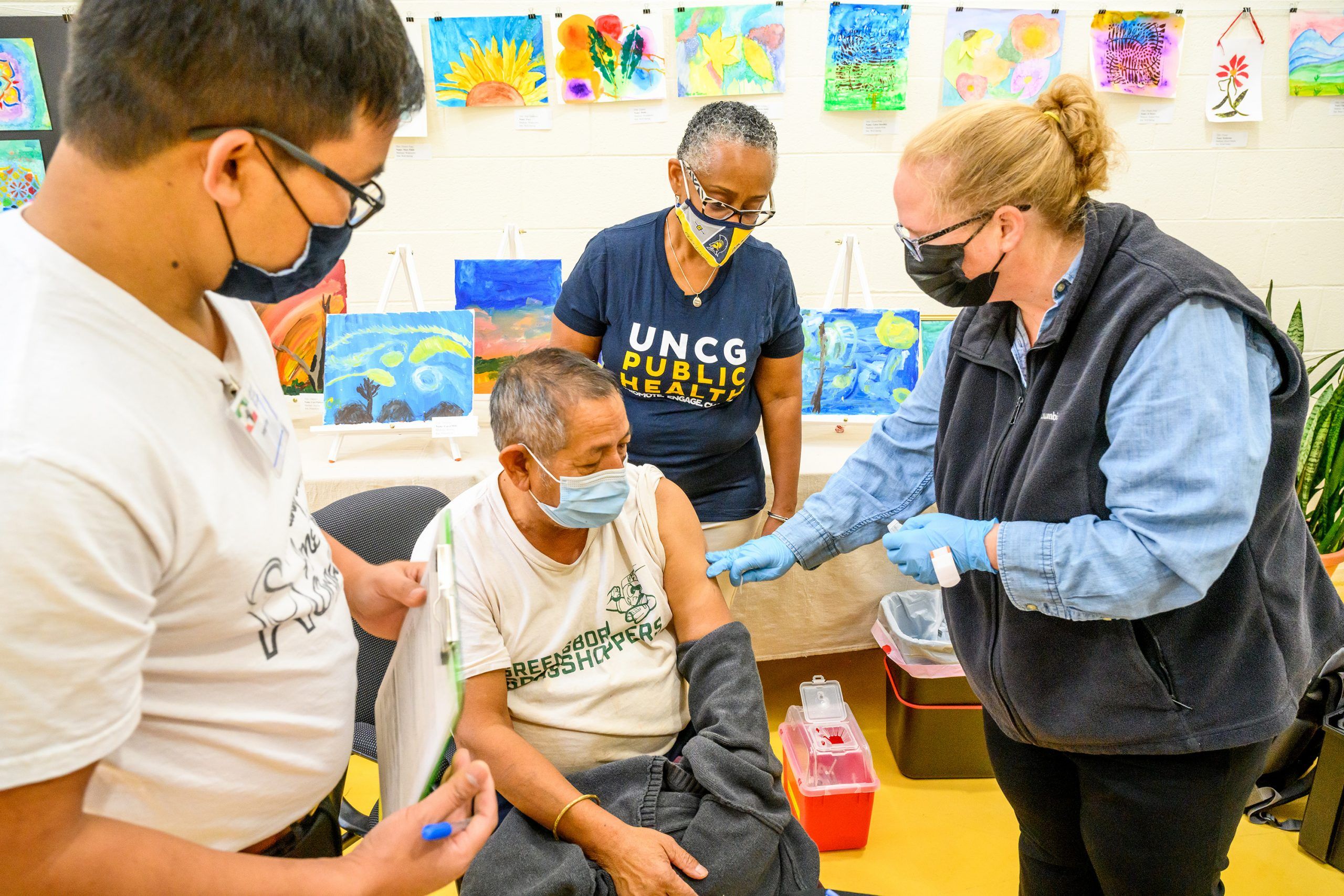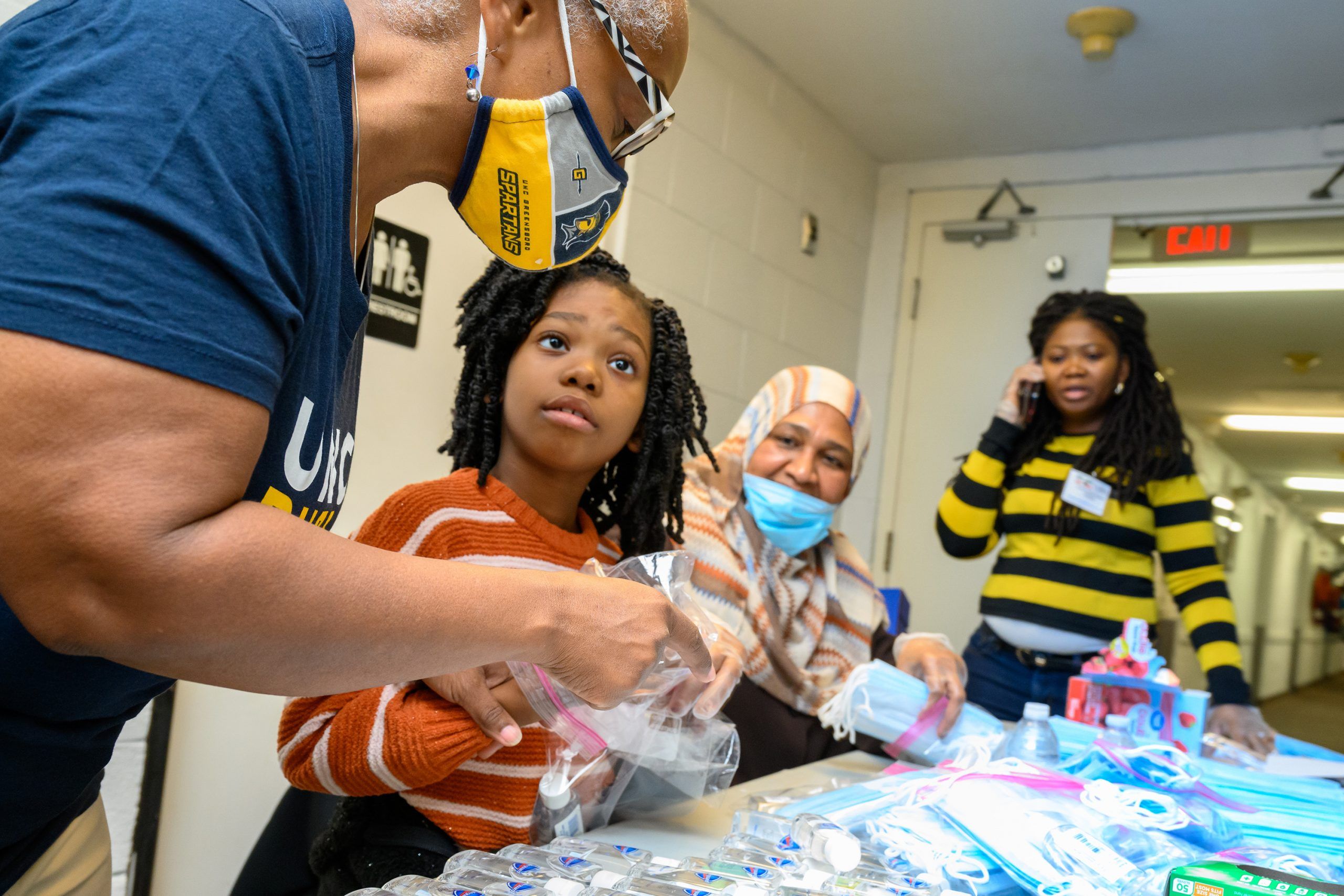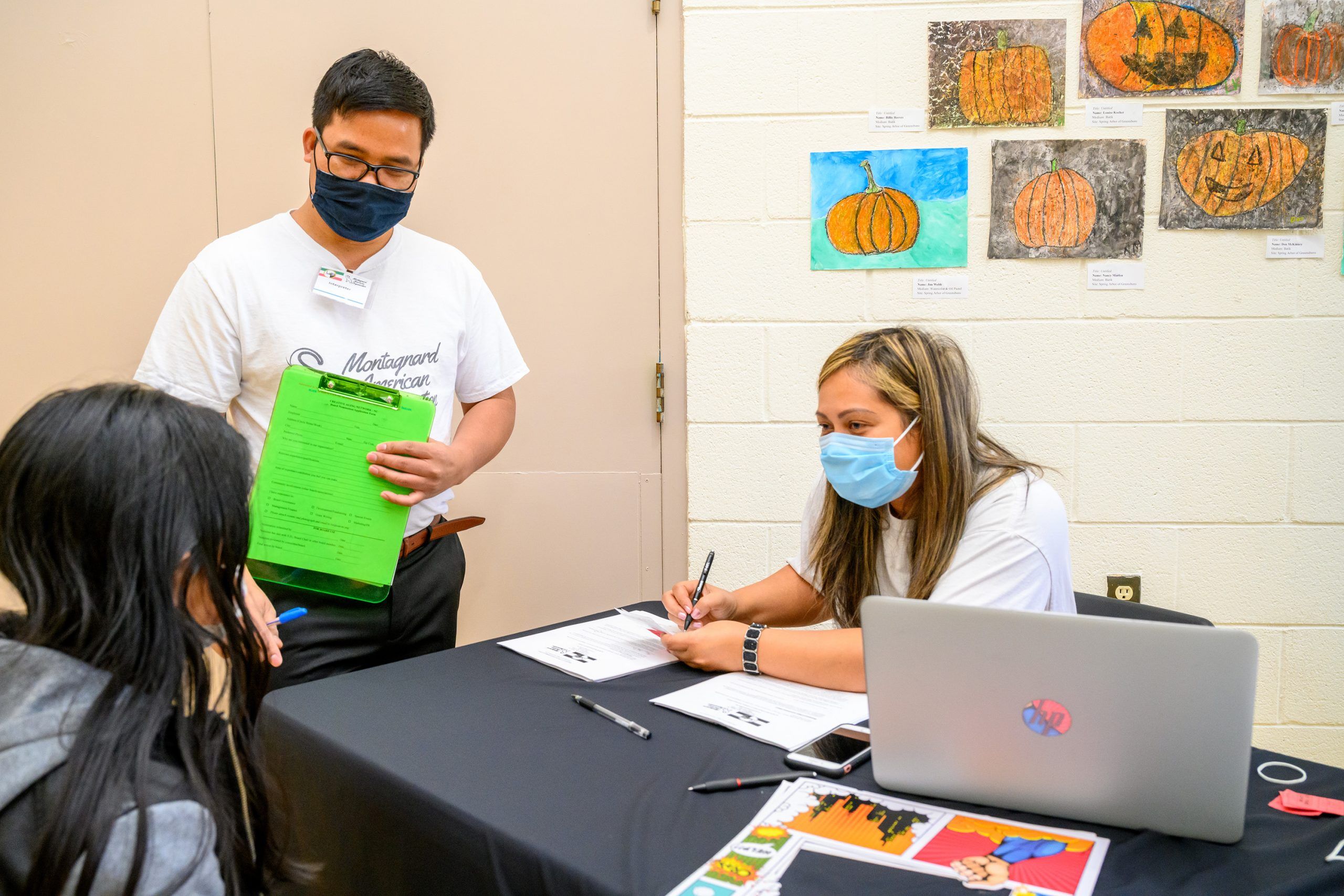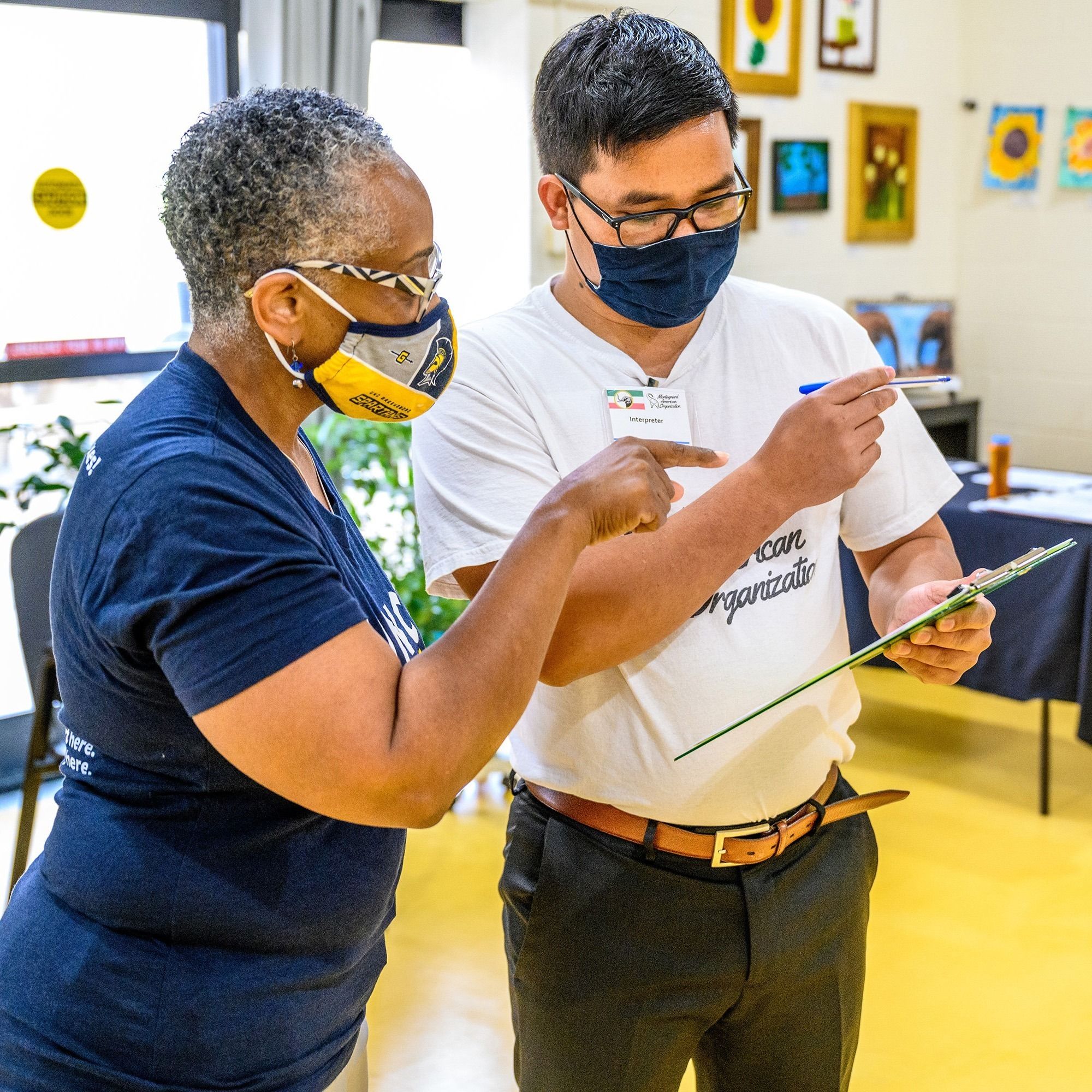
When Xuem Siu first arrived in the U.S. as a 24-year-old in 2008, he barely spoke any English. He could count to ten and exchange basic greetings, but that was about it. Now the master’s student in public health considers English his fifth language, behind Jarai, Rhade, Bahnar, and Vietnamese.
Siu is part of Greensboro’s Montagnard community, which at about 7,000 members is the largest gathering of the people outside of Vietnam. Many Montagnards, who come from several ethnic groups in the Vietnamese highlands, were resettled here after supporting U.S. troops during the Vietnam War. Siu is working to address the challenges faced by his and other local refugee communities, particularly when it comes to the pandemic.
Already a UNCG graduate with a master’s in peace and conflict studies, Siu returned to the University last year to become the first community health scholar directly supported by the Montagnard Dega Association, a local nonprofit. “This job is so important, that’s why I took this role,” he says. “I wanted to contribute to the community.”
Public health grad student Siu and Professor Sharon Morrison assist at a vaccine clinic co-hosted by the Montagnard Dega Association, the Sudanese and Congolese communities, and Gates Pharmacy.
Siu’s work is part of research his mentor Dr. Sharon Morrison has conducted with refugee communities in Greensboro for more than 15 years.
This community-based participatory research, Morrison says, involves working alongside communities to identify problems and implement solutions together. “The community identifies the issue and we get the data to inform strategies.”
Her team attends community meetings, talks to local leaders, develops and offers suggestions, and actively takes part in community efforts. At the beginning of the pandemic, Morrison’s then-graduate students – Saif Al Amin and Fatima-Ezzahra Salmi – worked with the Montagnard, Bhutanese, and Congolese communities to build systems that would help them weather the storm.
That included observing how younger Montagnards were using social media to increase COVID-19 awareness and building on their efforts, creating translated infographics and videos, and helping distribute materials to families in need.
Now, Siu and Morrison are helping locals adapt to new challenges like getting vaccines and boosters and avoiding variants.
Between May and December of 2021, Morrison’s team and the Montagnard Dega Association were able to assist close to 200 families and have helped vaccinate more than 500 individuals. Since the fall of 2020, 40 adults have received food on a monthly basis.
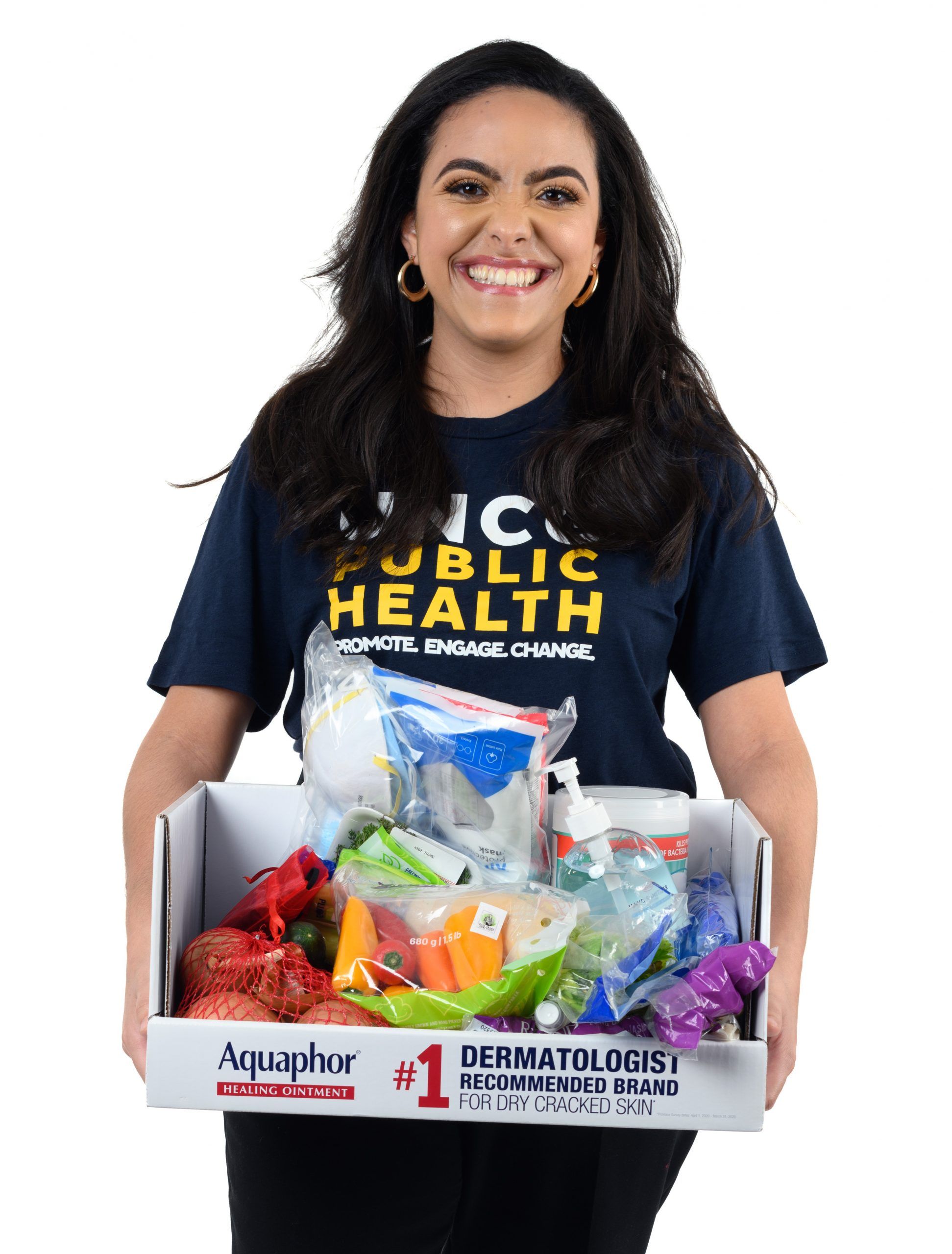
Fatima-Ezzahra Salmi, who also has a bachelor’s from UNCG, focused on infographics and distributing food and PPE to families in need. She earned her MPH from UNCG in 2021 and now works for UNICEF.
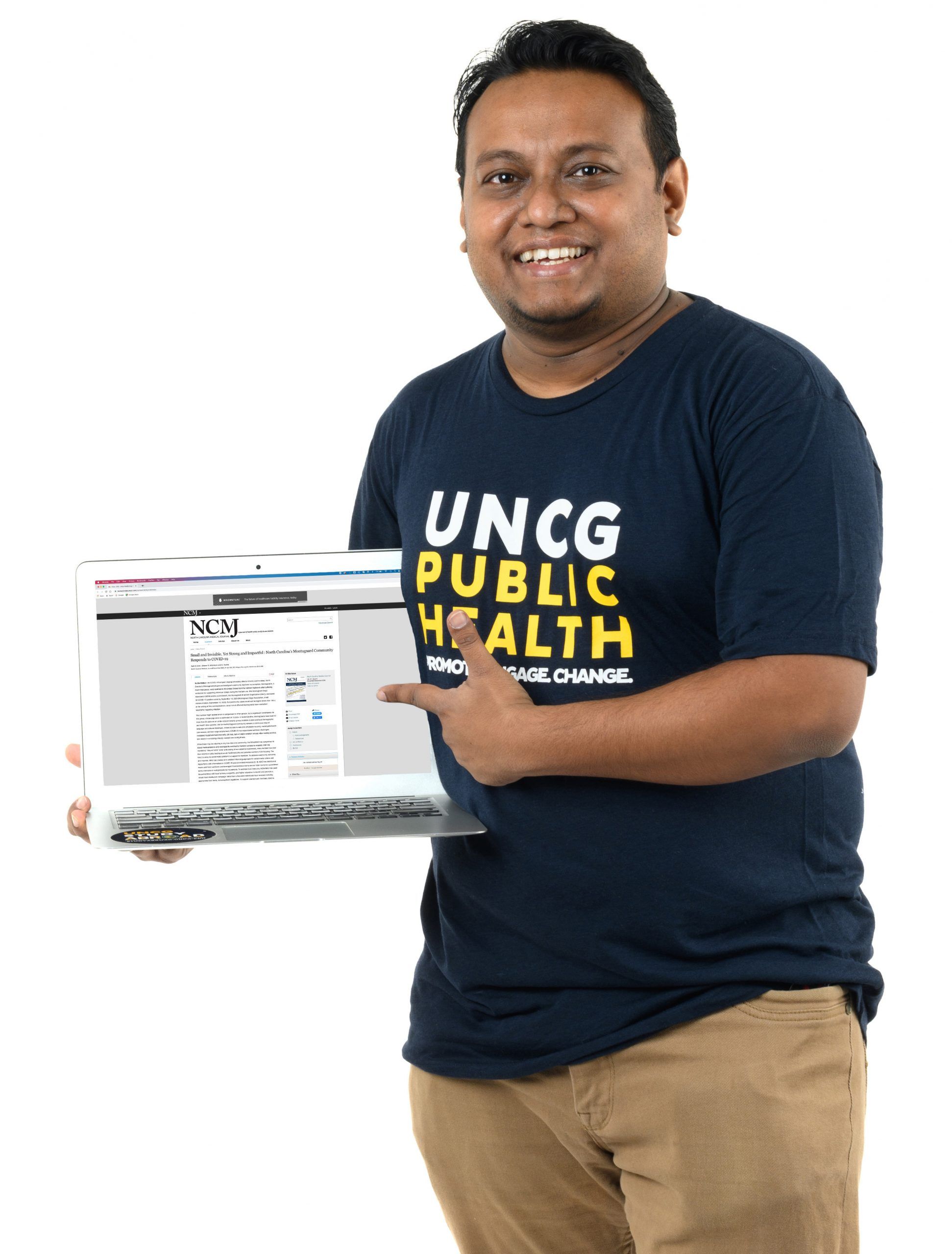
Saif Al Amin’s focus was social media and digital assets to increase awareness of COVID-19. He earned his MPH from UNCG in 2021 and is now entering the epidemiology PhD program at UNC Chapel Hill.

When Al-Amin came to the US from Bangladesh in 2018. He was drawn to UNCG’s reputation for community-engaged research: “Working for the community has always been the preference for me.”

The team has also documented the Montagnard nonprofit’s response to the pandemic, with a resulting publication in the North Carolina Medical Journal.
Publications, they say, will help others see how community-based participatory research can work to directly help underserved communities.
“When we talk about community engagement, we take our lead from the community and that’s how work gets done,” says Morrison. “Whatever we find, we then give back to the community.”
And their efforts are working. Community members are accessing the information they need more readily now, Siu says, because of social media efforts, and community leaders are more aware of how to engage.
The Montagnard nonprofit is growing, and new generations of community leaders are feeling empowered to create positive change, tapping into resources like the Kate B. Reynolds grant that’s supporting Siu’s work, and funding from the NC DHHS and NC Counts Coalition Healthier Together Initiative and Partners in Health.
Now, Morrison’s research group is assisting as the Montagnard Dega Association trains Cambodian and Bhutanese community leaders in emergency preparedness and responses.
And while Siu may not admit it himself, he too, has emerged as a leader within his community.
“I see a lot of smiles,” he says. “They’re working together. We have more resources, more networks. What I see is really successful.”

The Montagnard Dega Association and Gates Pharmacy are working together to offer vaccines to local refugee populations. The clinic pictured here took place at the Creative Aging Network, a nonprofit that regularly partners with MDA.
1. Y Siu Hlong, DMin receives his vaccine from Hayley Wood, PharmD, MBA. Hlong is the former executive director of the MDA and one of Siu’s mentors. “When I came to this country, he supported me and pushed me. He always says, ‘Education first. If I can get my degree, so can you.'”
2. Sudanese refugee community leader Siddiga Ahmed and community health worker Satta Sedi, who is originally from Liberia, put together and distribute PPE bags at the clinic, with the help of Sedi’s daughter.
3. Liana H’Yua Adrong, the current executive director of the MDA, manages intake at the clinic event. Adrong holds a bachelor’s degree from UNCG and a master’s from the Joint NCAT-UNCG Social Work Program.
